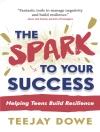‘Highly recommended.’– Choice: Current Reviews for Academic Libraries
This handbook is the definitive resource for scholars and students interested in how research and theory within each of the major domains of psychologyódevelopmental, cognitive, personality, and socialóhave been applied to understand the nature of scientific thought and behavior. Edited by two esteemed pioneers in the emerging discipline of the psychology of science, it is the first empirically based compendium of its time. The handbook provides a comprehensive examination of how scientific thinking is learned and evolves from infancy to adolescence and adulthood, and combines developmental and cognitive approaches to show the categorical similarities and differences in thinking between children, adolescents, adults, and scientists.
Chapters highlight the breadth and depth of psychological perspectives in the studies of science, from creativity and genius, gender, and conflict and cooperation, to postmodernism and psychobiography. A section on applications offers findings and ideas that can be put to use by educators, policymakers, and science administrators. Contributors examine the importance of mental models in solving difficult technical problems, and the significance of leadership and organizational structure in successful innovation. The final section of the book is devoted to the future of this new field, focusing on how to continue to develop a healthy psychology of science.
Key Features:- Presents the only empirically based compendium of current knowledge about the psychology of scientific thought and behavior
- Edited by two pioneers in the discipline of psychology of science
- Describes how scientific thinking is learned and changes throughout the life span
- Addresses creativity and genius, gender, conflict and cooperation, postmodernism, and psychobiography
- Covers applications of the psychology of science that can be used by educators, policymakers, and science administrators
Jadual kandungan
‘
Introduction & History
Chapter 1: Introduction: Another Brick in the Wall
Gregory J. Feist & Michael E. Gorman
Chapter 2: History of the Psychology of Science
Steve Fuller
Foundational Psychologies of Science
Chapter 3: Learning Science Through Inquiry
Corinne Zimmerman & Steve Croker
Chapter 4: Cognitive-Historical Approaches to the Understanding of Science
Ryan Tweney
Chapter 5: The Scientific Personality
Gregory Feist
Chapter 6: Scientific Communication in the Process to Coauthorship
Sofia Liberman & Kurt Bernardo Wolf
Development and Theory Change
Chapter 7: Scientific Reasoning: Explanation, Confirmation Bias, and Scientific Practice
Barabara Koslowski
Chapter 8: The Nature of Scientific Reasoning and its Neurological Substrate
Antwon Lawson
Chapter 9: Children as Scientific Thinkers
David Klahr, Bryan Matlen & Jamie Jirout
Special Topics
Chapter 10: Creative Genius in Science
Dean Simonton
Chapter 11: Gender and Science: Psychological Imperatives
Neelam Kumar
Chapter 12: Conflicts, Cooperation, and Competition in the Fields of Science and Technology
Anna Dorothea Schulze and Verena Seuffert
Chapter 13: Postmodernism and the Development of the Psychology of Science
Capaldi & Proctor
Chapter 14: Psychobiography and the Psychology of Science
William Mc Kinley Runyan
Applied Psychologies of Science
Chapter 15: The Psychology of Technological Invention
Michael E. Gorman
Chapter 16: The Psychology of Research Groups: Creativity and Performance
Sven Hemlin & Lisa Olsson
Chapter 17: The Psychology of Human Research Participation
Anne Moyer
Chapter 18: Heuristics and Biases that Help and Hinder Scientists: Toward a
Psychology of Scientific Judgment and Decision Making
Joanne Kane & Gregory D. Webster
Chapter 19: The Psychology of Uncertainty in Scientific Data Analysis
Christian D. Schunn & J. Gregory Trafton
Past and Future of Psychology of Science
Chapter 20: Quantitative Trends in Establishing a Psychology of Science: A Review of the Metasciences
Gregory D. Webster
Chapter 21: Conclusions and the Future of the Psychology of Science
Michael E. Gorman & Gregory J. Feist
‘Mengenai Pengarang
Michael E. Gorman, Ph D, is a professor at the University of Virginia.












